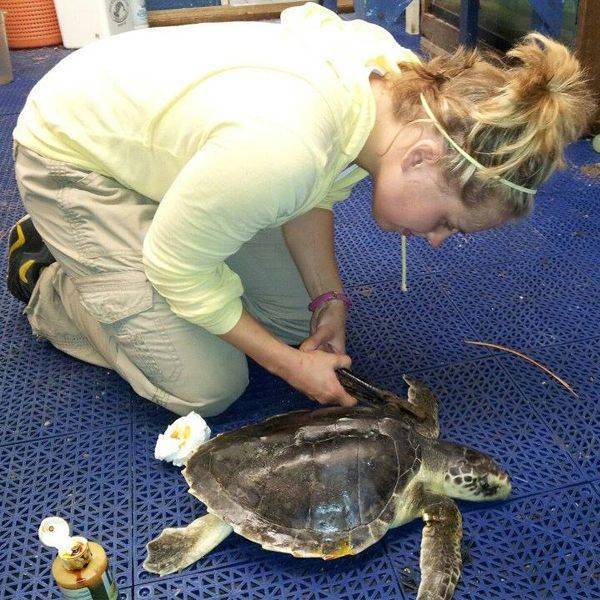[dropcap]D[/dropcap]ear Friends,
The holidays are over and January is the month for new beginnings. However, January is also one of the coldest months in the state of Florida and many sea creatures may not get the chance to see the New Year.
Sea Turtles, of which vast amounts call Florida and the Big Bend region home, are especially susceptible to cold temperatures. In the New England states, winter poses a much bigger problem for this species. However, Sea Turtles also face many challenges in the cold months of January and February here in Florida as well. In 2010 there were over 1,500 cold-stunned turtles stranded in St. Joe Bay alone. The Gulf Specimen Marine Lab has been a Sea Turtle rehab facility since it was opened in 1961. The founder of the Laboratory, Jack Rudloe, worked closely with Archie Carr who is considered one of the first people to study with Sea Turtles.
Sea Turtles have ambient body temperature, which means that their body temperature will match the surrounding temperature of the environment that they are in. Once the water temperature reaches 50° the Sea Turtles go into a coma-like state where they can no longer move. As they float at the surface they are subject to wind and current. They have no ability to maneuver themselves. St. Joe Bay is a hotspot for cold-stunned Sea Turtles because of its geographical location. Large sea currents push from Pensacola towards Tampa. St. Joe Peninsula works as a hook catching all different types of cold-stunned Sea Turtles. As these turtles wash up on tide flats and shallow lagoons in the Bay they are subject to the elements. Some of the injuries that we saw were severe frostbite to the turtle’s eyes, flippers, and shell. The cure for a cold-stunned sea turtle is to remove them from their environment until temperatures return to normal.
As I was writing this story, the US was hit by an Arctic vortex which brought extremely cold temperatures to the south. There were over 65 cold-stunned turtles found in St. Joe Bay this past week. If you find yourself out at the beach, keep an eye out for Sea Turtles, they could use your help. If you come across one of these turtles please contact The Gulf Specimen Marine Lab or the FWC.


